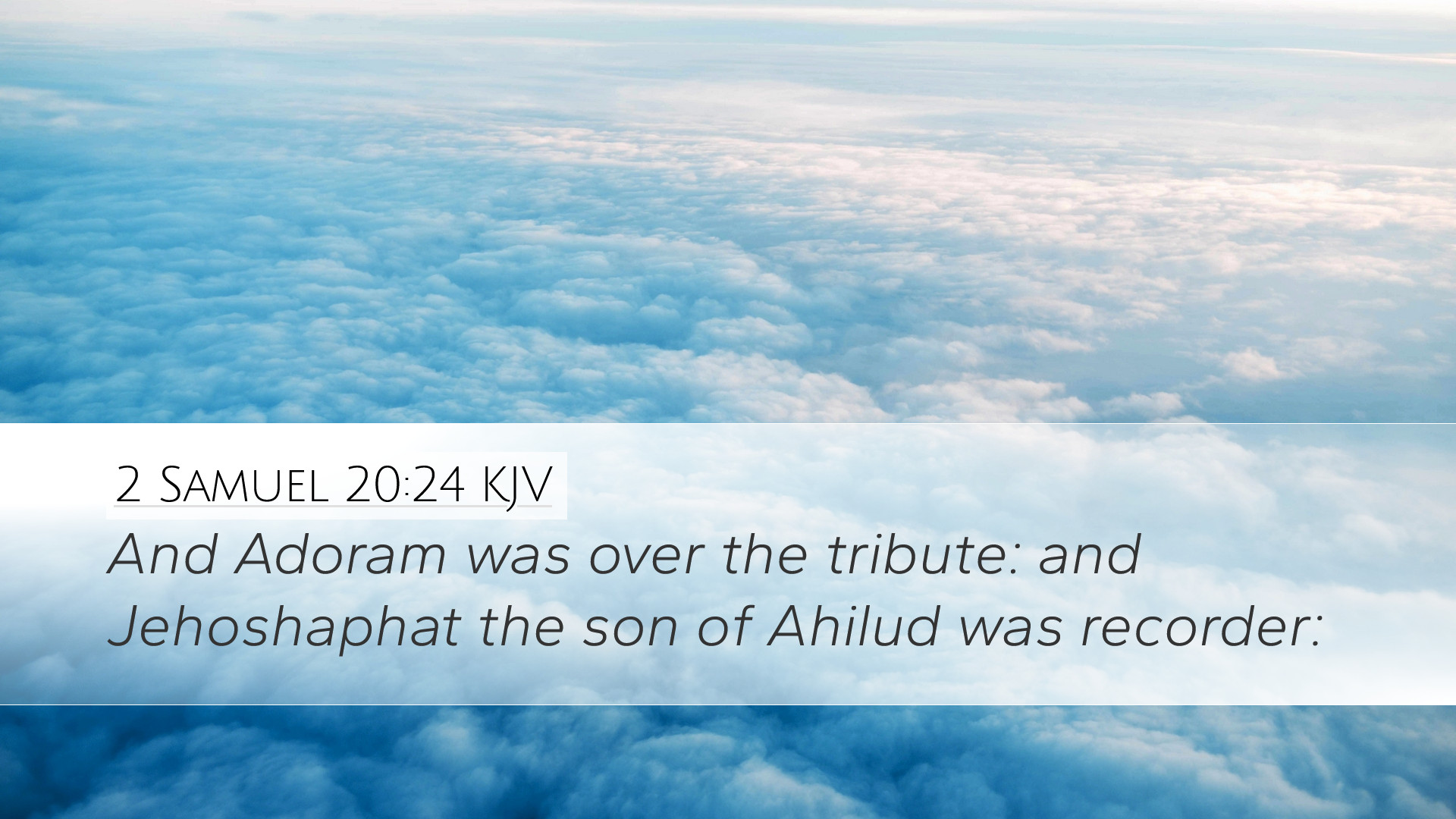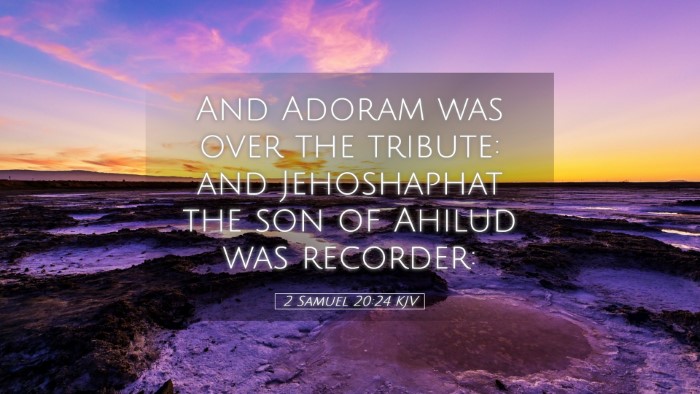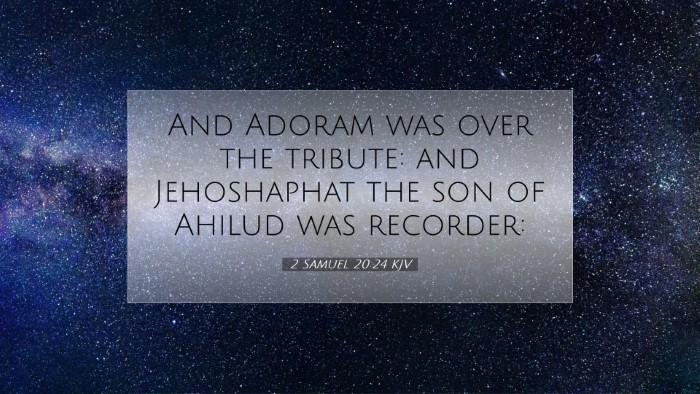Commentary on 2 Samuel 20:24
Verse: "And Adoram was over the tribute: and Jehoshaphat the son of Ahilud was recorder."
Introduction
This verse occurs within the narrative of David’s reign over Israel, particularly during a time of political upheaval following Absalom's rebellion. The mention of Adoram and Jehoshaphat here serves to illustrate the organization of David's administration and the roles that certain officials played during his rule.
Interpretative Insights
1. The Role of Adoram
Adoram as a Figure of Authority: Adoram is depicted here in charge of the tribute, a position of significant responsibility in the administration of King David. Matthew Henry notes that Adoram's role involved overseeing the taxes collected from the people, indicating a level of trust the king had in him.
Symbolism of the Tribute: The tribute represents not merely taxation but the acknowledgment of David's kingship and the covenant between the monarchy and the people. Albert Barnes explains that the tribute could also reflect the people's relationship with God; by contributing to the king, they demonstrate an aspect of their loyalty to divine order.
2. Jehoshaphat as Recorder
The Duties of the Recorder: Jehoshaphat’s role as the recorder suggests that he was responsible for keeping the official records of the kingdom. Adam Clarke highlights that a recorder not only kept track of events and decisions but also served as a historical witness to the acts of governance during King David’s reign. This position denotes both the importance of historical preservation and the operational transparency of the administration.
Legacy of Jehoshaphat: The choice of Jehoshaphat's name may also be significant; "Jehoshaphat" means "Yahweh has judged." This reflects a theological stance that God’s judgment is central in matters of governance, implying that the earthly rulers are accountable to divine authority. Barnes emphasizes that a good administration will be marked by godly principles.
Theological Reflections
1. Divine Order in Governance
This verse invites theological reflection on how God orders the affairs of men through appointed leaders. Both Adoram and Jehoshaphat represent aspects of governance–taxation and record-keeping–that contribute to the stability and integrity of the nation under David’s kingship. This arrangement reminds us of the biblical principle that all authority is established by God (Romans 13:1).
2. The Church and Its Administration
In a direct application to the church, the roles of Adoram and Jehoshaphat can be compared to modern ecclesiastical roles. Just as Adoram managed the resources and finances of the kingdom, church leaders today are called to be good stewards of the resources entrusted to them. Likewise, organizers of church records ensure that the testimonies of God’s work are preserved for future generations. The principles of accountability and stewardship remain relevant in the church's mission.
Conclusion
Summation of Insights: 2 Samuel 20:24 encapsulates the appointed roles within King David’s context, showing the orderly structure that God establishes in governance. Adoram and Jehoshaphat exemplify the necessary functions that allow a kingdom to flourish, revealing a portrait of divine wisdom in the organization of leadership. For pastors, students, theologians, and scholars, this verse serves as a reminder to reflect on both the historical and contemporary significance of order and accountability within spiritual leadership.
Further Suggestions for Study
- Examine the broader context of 2 Samuel 20 to understand the implications of political unrest and how effective governance is crucial during times of conflict.
- Explore the historical and cultural practices surrounding tribute and taxation in ancient Israel and how these practices relate to modern church stewardship.
- Reflect on the theological implications of accountability in leadership as presented in the Bible and how it affects contemporary church governance.


